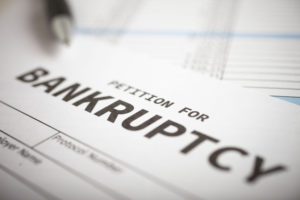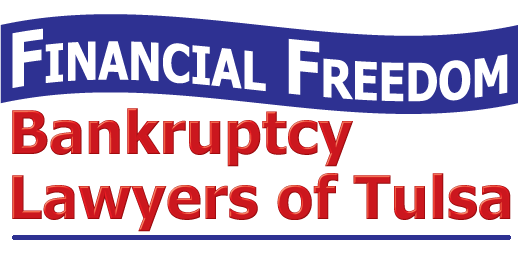Oklahoma Bankruptcy HelpAre You Personally Bankrupt or Are You Facing Oklahoma Business Bankruptcy?
Bankruptcy court recognizes personal bankruptcy, but it the Oklahoma courts also recognize business bankruptcy. Generally, it does not recognize a mixture of the two in one bankruptcy petition. But there are exceptions.
There Are Differences Between Personal and Business Bankruptcy Cases
 Personal debt gives rise to personal bankruptcy cases. That debt is debt that has been incurred in your personal life. A credit card used for personal purchases of clothing or a vacation or tickets to the movies on date night are both examples of personal debt.
Personal debt gives rise to personal bankruptcy cases. That debt is debt that has been incurred in your personal life. A credit card used for personal purchases of clothing or a vacation or tickets to the movies on date night are both examples of personal debt.
Business debts are those incurred in the regular running of a business. These might include an office copier, paper, postage, telephone costs, and meals entertaining clients.
Often these two classifications are kept separate. One credit card is used for business expenses only. One is used for personal expenses only. But what happens with smaller businesses, where an item purchased for the business might also be used for personal matters, or where an item once bought as a personal item becomes used by the business? Or when a personal credit card is used to buy business items?
This happens more often than you would think with small businesses. And this can lead to trouble and confusion in business bankruptcy.
You must be clear about whether the debt belongs to the business or to you personally and what kind of debt is dischargeable in what kind of bankruptcy, whether it’s a personal bankruptcy or a business bankruptcy.
When Business and Personal Bankruptcies Bleed into Each Other
Chapter 7 and Chapter 11 are the types traditionally reserved for business bankruptcy. Chapter 7 liquidation also is the chapter that covers personal bankruptcies. Chapter 11 is a reorganization of business debt.
Chapter 7 and Chapter 13 are the most common types of personal bankruptcy in Tulsa. While most company bankruptcies do not affect the business owner’s credit rating, this does not apply to personal bankruptcy.
Corporations must be represented by counsel during bankruptcy proceedings. A corporation’s bankruptcy is much more complicated than a mom-and-pop business which is ceasing operations.
If you file for personal Chapter 7 relief, you may file and get your personal liability for some business debt discharged. But unless you are a sole proprietor, the business itself will still be held liable for the business debt. That must be handled separately.
Here are some examples of personal liability for business debt that can be discharged in Chapter 7:
- credit card debt
- medical bills
- unsecured debts owed by a sole proprietor to business suppliers, consultants, and other service providers
- contracts entered into by a sole proprietor, including rental agreements
Other types of business debt cannot be discharged through a personal Chapter 7 filing. Examples of these include:
- pension plan loans
- many tax debts
- court fines and court-ordered restitution
- child support
- student loans
Corporate Debt is Handled Differently
In a corporate Chapter 7, a bankruptcy trustee will sell your business assets and distribute any profits to your creditors. You then must cease operations of your business and dissolve the business. Dissolving the business is a formal filing of papers with the state. This prevents the business from incurring further corporate debt. This kind of dissolution is helpful for corporate and LLC debt. And although it sounds like a simple process, it is, in fact, quite complicated.
Chapter 11 allows the reorganization of debt. The bankruptcy trustee looks to the assets of the business to help pay a portion of the debt owed to creditors over time. This, too, is a complicated bankruptcy procedure.
These types of bankruptcy proceedings are complicated, and it is important to get them done right. Make sure and consult with an expert in the field.
Low-cost Bankruptcy Planning: Tulsa Bankruptcy Lawyer
To get the best possible outcome in your bankruptcy case, you will need to set expectations for yourself and also understand your attorney’s expectations of you.
If you’re ready to file, contact a Tulsa bankruptcy attorney at the Freedom Financial Bankruptcy Lawyers of Tulsa as soon as possible.
To receive your low-cost initial bankruptcy analysis, call the Freedom Financial Bankruptcy Lawyers of Tulsa today at (918) 786-9600.




